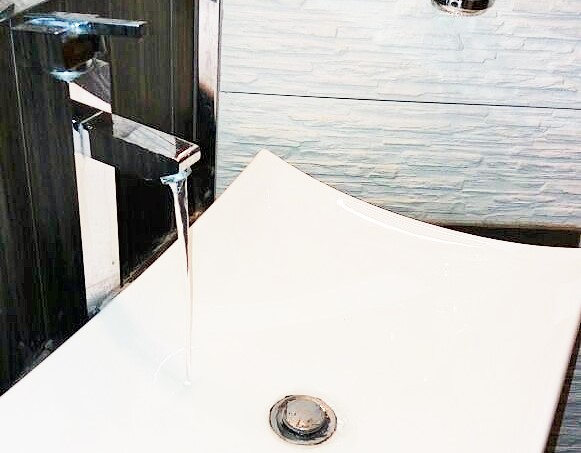Proven Strategies for Solving Low Water Pressure in Your Home
Proven Strategies for Solving Low Water Pressure in Your Home
Blog Article
What're your thoughts with regards to 10 Reasons for Low Water Pressure in Your House?

Low water stress in your house can be an aggravating problem, impacting whatever from showering to washing recipes. If you're experiencing weak water circulation, there are a number of feasible reasons and services to check out. In this guide, we'll go over typical factors for low water stress and sensible actions to resolve the issue effectively.
Intro to Low Tide Pressure
Low tide pressure occurs when the circulation of water from your faucets, showers, and various other components is weaker than typical. This can make daily jobs extra tough and less effective. Understanding the root causes of low water pressure is crucial to finding the appropriate service.
Usual Reasons For Low Water Pressure
Faulty Stress Regulatory Authorities
Pressure regulatory authorities are accountable for maintaining constant water stress in your home. If they malfunction, it can result in low water stress or unequal circulation throughout your house.
Metropolitan Water Issues
Often, the problem lies outside your home. Metropolitan supply of water concerns, such as main line leakages or maintenance work, can momentarily minimize water pressure in your area.
Pipeline Obstructions
In time, pipes can end up being clogged with natural resource, sediment, or debris, limiting the flow of water. This is a common problem in older homes with galvanized steel pipelines.
Deterioration
Rust within pipes can bring about leakages and minimized water stress. Rust buildup can constrict water circulation, particularly in maturing plumbing systems.
Exactly How to Identify Low Tide Pressure
Inspecting Pipes
Examine visible pipes for signs of leaks, corrosion, or clogs. Focus on any unusual audios, such as knocking or rattling pipelines, which could show concerns within the plumbing system.
Consulting with a Plumber
If you're not able to identify the cause of low tide stress, think about working with a specialist plumber to conduct a detailed inspection. They can recognize underlying concerns and recommend suitable solutions.
Checking Faucets and Fixtures
Beginning by evaluating the water stress at different faucets and components throughout your home. If the problem is separated to details locations, it might indicate local issues.
Do It Yourself Solutions to Repair Low Tide Pressure
Flushing Hot Water Heater
Debris buildup in the hot water heater can restrict circulation and minimize effectiveness. Flushing the storage tank regularly aids eliminate debris and preserve ideal performance.
Examining Pressure Regulatory Authority
Make sure that the stress regulatory authority is operating correctly. Readjusting or changing the regulator can help restore proper water pressure throughout your home.
Cleansing Aerators and Showerheads
Mineral deposits can accumulate in aerators and showerheads, lowering water circulation. Remove and clean these elements frequently to boost water pressure.
Clearing Clogs in Water Lines
For small clogs, try making use of a plumbing snake or chemical drain cleaner to clear blockages in pipes. Beware when making use of chemicals and comply with safety and security guidelines.
When to Call an Expert Plumber
If do it yourself efforts fall short to resolve the problem or if you presume considerable plumbing problems, it's ideal to look for support from an accredited plumber. They have the experience and tools to attend to complex concerns safely and efficiently.
Preventive Measures to Keep Water Pressure
Setting Up a Pressure Booster
Consider mounting a stress booster pump to improve water pressure in areas with constantly low circulation. This can be especially advantageous for multi-story homes or properties with high-demand fixtures.
Monitoring Water Usage
Be mindful of water usage practices and prevent overtaxing the plumbing system. Easy adjustments, such as incredible showers and laundry lots, can help maintain appropriate water stress.
Routine Maintenance
Schedule regular upkeep for your plumbing system to avoid issues such as corrosion, leakages, and clogs. Attending to small problems early can help avoid more considerable fixings in the future.
Final thought
Managing low water stress can be discouraging, but determining the underlying causes and carrying out proper solutions can bring back ideal circulation throughout your home. Whether it's cleansing aerators, inspecting pipes, or consulting with a plumber, taking proactive steps can make certain a consistent supply of water for your everyday demands.
How to Fix Low Water Pressure In Your Home
Municipal Water Supply Issues
Scheduled maintenance, high demand, and water main breaks are all potential causes for low water pressure within a city or county’s water lines. While there’s not much you can do to personally fix a problem with your city or county’s water supply system, you can play a big role in documenting the issue and alerting those who can.
How to fix it:
Ask your neighbors if they are experiencing any issues with low water pressure. If multiple homes are affected, it’s likely related to the city’s water line. Contact the local Water Authority to see if there is any maintenance taking place that might be affecting your supply. Also let them know of your specific issues. If other homeowners report the same issues, they’ll know that there could be a larger issue to look into. Faulty Fixtures
A damaged or clogged shower head, faucet or appliance is the first thing we’d suggest checking, especially if low water pressure appears to be isolated to a specific area of your home.
How to fix it:
First, turn off the main water supply to your home. Check the affected appliances for build-up or debris. In the case of a faucet, you can simply unscrew the aerator at the tip of the faucet. Showerheads should be fully detached from the water pipe. While the appliances are detached, you may want to check the water supply to determine if the fixtures were in fact the issue. To clean, soak the showerhead or aerator in vinegar and brush off any visible debris. Reattach the fixtures and check the water pressure again. If it is still low, there is likely a deeper issue at hand, which can be determined by a professional plumber. Pipe Obstructions
Mineral deposits, rust or other debris within water pipes can lead to blockages or corrosion over time.
How to fix it:
When you think of a clog, you probably think of a drain clog. While there are many DIY solutions to clearing a drain, clogs in a water pipe will almost always require the help of a professional plumber. A plumber will be able to locate the affected pipe and clean out any debris or mineral deposit buildup. In severe cases, the pipe may need to be replaced. Your plumber might also recommend a water softening system to remove the minerals from your home’s water supply that can contribute to pipe blockages over time.
Plumbing Leak
Undetected water line leaks can divert water away from your residential pipes, reducing the water pressure in your fixtures.
How to fix it:
Check your water meter by turning off all water sources and monitoring the meter for any movement, which could be a clear indicator of a potential leak. Check all visible pipes for signs of leaking, including water stains, active dripping or damp spots around the pipe. Inspect fixtures, including faucets and showerheads, for any drips. Test the pressure but recording the pressure with the main water valve shut off. Leave off for a few hours and test again. A significant drop in pressure is a clear sign of a leak. https://kiddcoplumbing.com/plumbing-blog/how-to-fix-low-water-pressure/

I recently found that piece of writing about Low Water Pressure in the House? while surfing around the web. Do you know about someone else who is occupied with the topic? Please feel free to share it. Thanks for being here. Come back soon.
Show Details Report this page